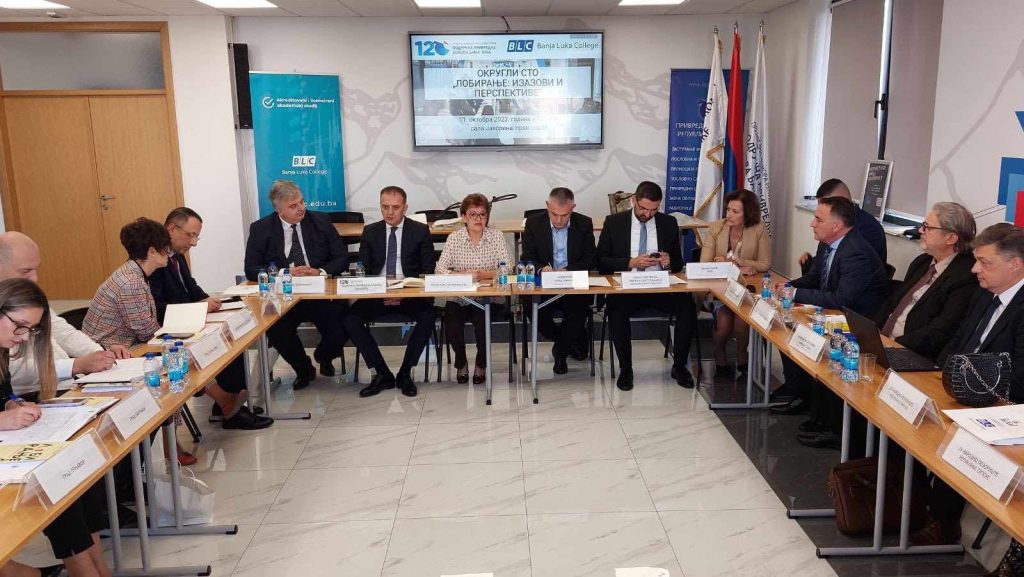The conditions have been created for the adoption of a lobbying law in Bosnia and Herzegovina, especially in the Republika Srpska, according to the conclusions of the round table “Lobbying: Challenges and Perspectives” held at the Regional Chamber of Commerce in Banja Luka.
“If we aspire to get closer to the European Union and European integration, we should accept some new principles, procedures, and rules of behavior. Among these is certainly lobbying, which is the organized exertion of influence on legislative representatives and decision-making. In order to draw a clear line between lobbying and corruption, it is desirable to enact a lobbying law that clearly defines what lobbying is, who can engage in it, and the basic procedures and principles to be followed,” stated the Regional Chamber of Commerce in Banja Luka.
It is mentioned that it is necessary to engage domestic experts and experts from neighboring countries to create this law so that the best practices can be applied in its implementation.
Furthermore, for the effective application of the law and its practical implementation, it is necessary to introduce the study of lobbying in higher education institutions, and certainly establish a curriculum where lobbying in the economy, corporate lobbying, lobbying in diplomacy, lobbying in the local community, culture, and sports could be studied.
The conclusion is that the Regional Chamber of Commerce and the Regional Economic Chamber should continue their initiative to create the best legislative solutions and also perform the function of lobbyists for all aspects related to lobbying as a process.
Borislav Kapetanović, representing the Club of Serbian Entrepreneurs in Vienna, also participated in this professional gathering. He emphasized the importance of the diaspora in the lobbying process for Serbia and the Republika Srpska.
According to him, it is necessary to take into account the experiences of the diaspora in the law-making process, which he considers crucial.
Kapetanović, on behalf of the Club, invited Zora Vidović, the Minister of Finance, and Zlatan Klokić, the Minister for European Integration and International Cooperation, to organize a public discussion in the diaspora during the law-making process.
This professional meeting was organized by the Regional Chamber of Commerce in Banja Luka and BLC Banja Luka College.


 Economy
Economy Energetics
Energetics Tourism
Tourism Agriculture
Agriculture ICT
ICT Food
Food


